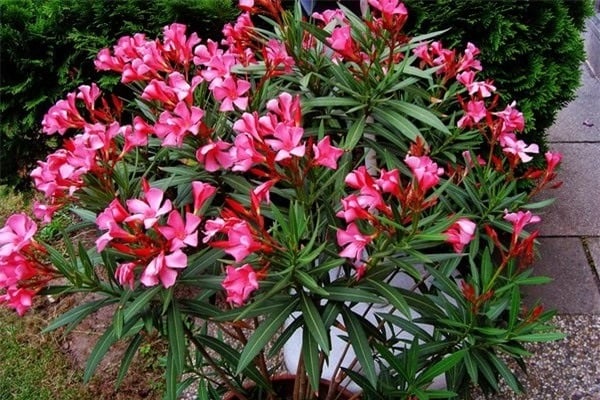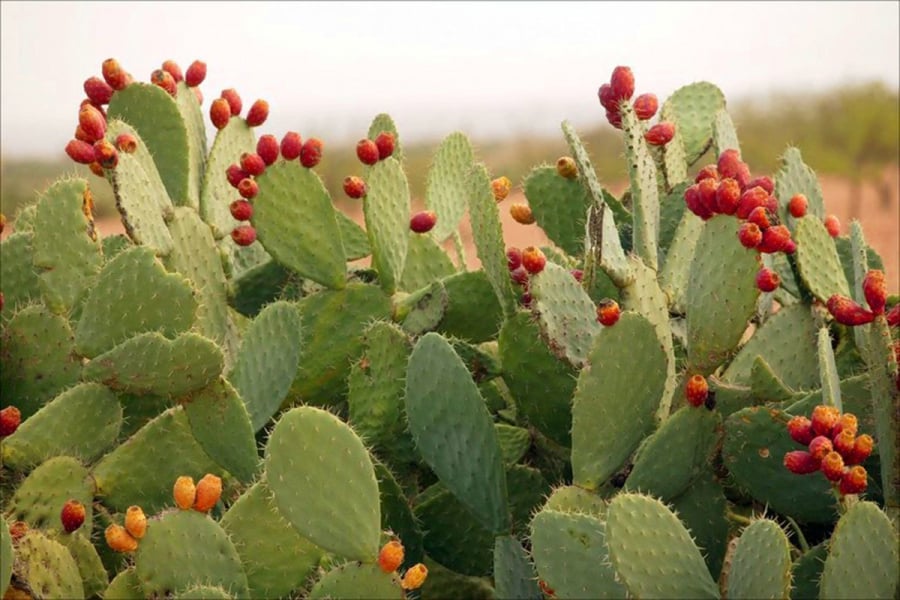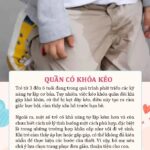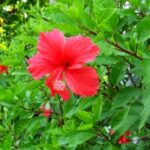Houseplants with High or Volatile Toxicity
While greenery is renowned for bringing a fresh and beautiful ambiance to living spaces, some plants contain harmful toxins such as poisonous sap, pollen, branches, or roots. These plants should be avoided altogether, especially in homes with children and the elderly.
Common toxic flowers include Trúc Đào, Hoa Trạng Nguyên, Narcissus, Yellow Jasmine, Dạ Lan Hương, and Lily. Even popular houseplant leaves like Dáy, Thiết Quan Âm, and Môn Cảnh can be toxic, so it’s best to steer clear of them.

Trúc Đào
Houseplants with Abundant Pollen that Cause Allergies
Numerous beautiful flowers produce abundant pollen, which can easily trigger allergies, especially for the elderly and children. Inhaling excessive pollen can be detrimental to respiratory health.
Oversized Houseplants or an Abundance of Houseplants
While greenery in the home, particularly in the living room, can create a vibrant and natural atmosphere, too many plants or oversized specimens can make the space feel gloomy and overgrown, attracting insects and creating a hiding place for them.
Additionally, having too many plants in the bedroom can disrupt your sleep and overall health, as they release carbon dioxide at night, reducing oxygen levels.
Houseplants with Thorns
Numerous flowers and plants have sharp branches and leaves, or are even covered in thorns, such as cacti, Bát Tiên cacti, and roses. While a few small plants placed in low-traffic areas may not pose a problem, larger pots in high-traffic areas can be hazardous, especially for children.
Furthermore, according to folk feng shui, displaying thorny plants in the home can lead to disharmony among family members and encourage quarrels, negatively impacting the family’s harmony.

Cactus
Wilting or Dead Houseplants
In reality, wilting or dead plants have lost their decorative value, and from a feng shui perspective, they symbolize loss and generate negative energy. They should be removed immediately, as they can negatively affect the mood and well-being of those living in the home.
Moreover, decaying plants can foster the growth of harmful fungi and insects, leading to indoor air pollution and potential health risks for family members.





































